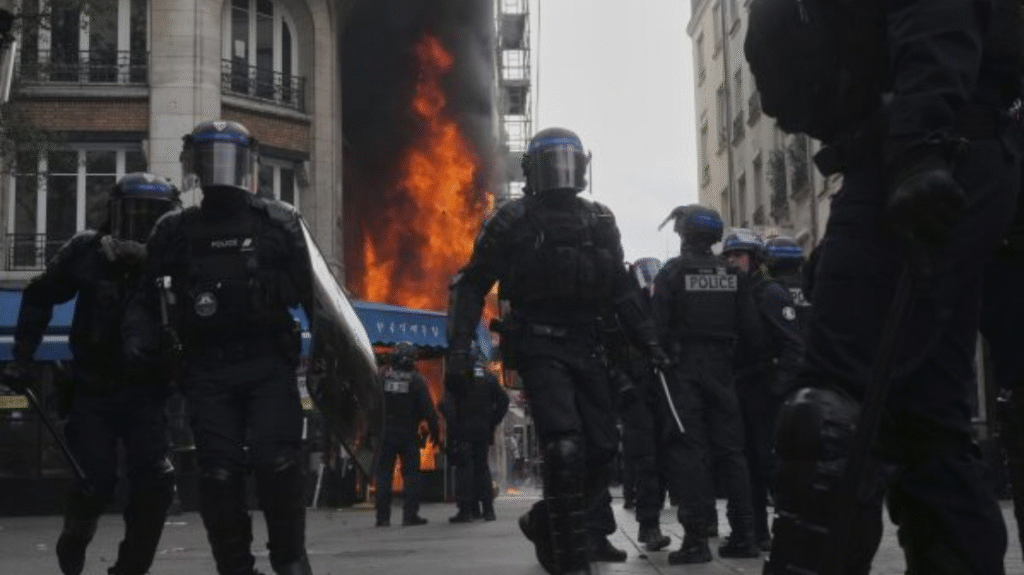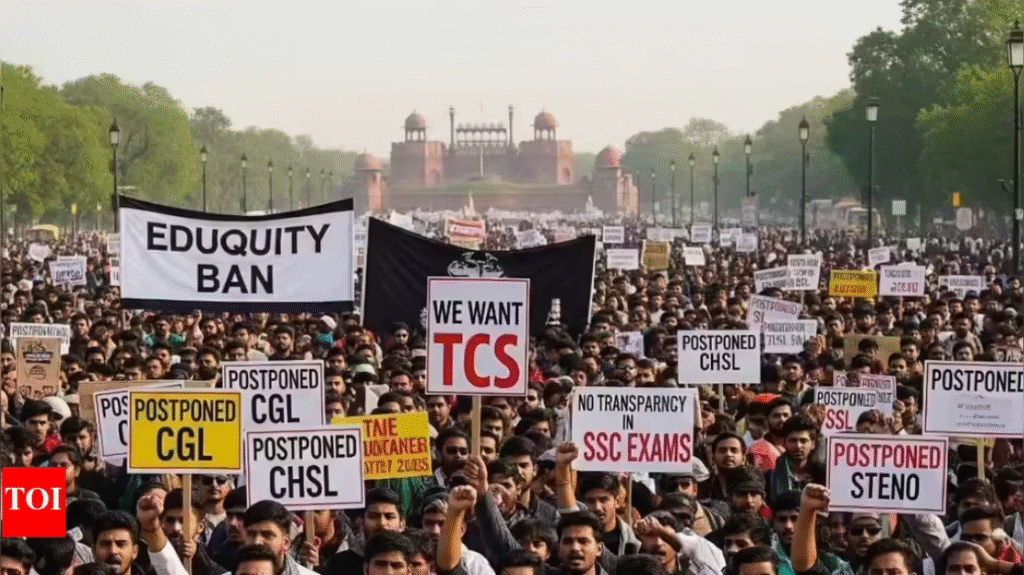What Is the “Block Everything” Movement?
On September 10, 2025, France witnessed widespread protests under the slogan “Block Everything” (in French, Bloquons Tout). Massive road blockades, burning barricades, train disruptions, and clashes with police swept through cities like Paris, Nantes, Marseille, Toulouse, and Lyon. The movement emerged online, initially by right-wing factions, then adopted by left, far-left, trade unions, and students. It targets austerity measures and what protesters view as a disconnected political elite.
Trigger: Budget Cuts & Political Instability
The spark was Finance Minister François Bayrou’s proposed budget for 2026, which included €43–44 billion in spending cuts, the elimination of two national holidays, freezes on pensions, and reductions in public service funding. These proposals, coupled with a parliamentary no-confidence vote that ousted Bayrou’s government, amplified public anger in France. Protesters saw this as the latest example of systemic neglect.
President Emmanuel Macron responded by changing Prime Ministers: Sébastien Lecornu was appointed, a close ally, in what many saw as an attempt to maintain political control rather than address citizen grievances.
Scale & Unrest: How Big Did it Get?
- Authorities deployed 80,000 security personnel nationwide.
- Participation estimates ranged from 197,000 to 250,000 protestors, depending on source (government vs unions).
- Nearly 300 arrests (some sources report 540 or more) across multiple cities in France. Many arrests due to setting fires, clashes, or refusing to disperse.
- Disruptions included blocked highways, burned trash bins, closed train lines and school/commute paralysis in parts of Paris and other cities.
Legal Issues and Constitutional Questions
Right to Protest vs Public Order
French law protects freedom of assembly and protest. However, actions like blocking highways, burning property, or interfering with transportation services often run up against laws concerning public order, obstruction, and potentially endangerment. Legal questions arise:
- At what point does protest cross into illegality?
- Are blockades or disruptions against transit considered “criminal obstruction”?
Arrests, Detention, and Police Powers
Authorities have made mass arrests. Several legal issues emerge:
- Due process: Are detainees being offered fair hearings, undue arrests or mass detentions?
- Proportionality: Are police tactics (tear gas, water cannons) proportional to the threat?
- Identification & Evidence: With large-scale protests, risk of wrongful arrests or detentions of bystanders.
Executive Accountability
The change in government in France and rapid appointment of Sébastien Lecornu while austerity remains central has political and constitutional ramifications. Critics argue:
- The budget was pushed without adequate debate.
- Citizens were not consulted.
- New PM was appointed under turbulent circumstances, raising legitimacy concerns.
Comparisons & Context: Yellow Vest Echoes
Many commentators compare Bloquons Tout to the Yellow Vests (Gilets Jaunes) protests of 2018-19 — both grassroots, decentralized movements rejecting policies seen as favoring elites, rising cost of living, and political disconnect.
- The earlier movement also used road blockades, petrol protests, civil disobedience.
- Similar demographic: rural, suburban citizens, youth; anger with institutional politics.
But this time, the tools (social media organisation, Telegram, decentralized local committees) seem more refined and widespread.
Government Response & Legal Repercussions
- Interior Minister Bruno Retailleau condemned the protests, accused them of being hijacked by extremists.
- Police cleared blockades and made arrests to maintain movement of traffic and infrastructure.
- Political fallout: Prime Minister Bayrou ousted, Lecornu installed. Government seeks to push ahead with budget, even under heavy public pressure.
On the legal front, possible investigations for:
- Vandalism, arson, property damage
- Illegal blockades of public transport
- Potential charges for obstruction, incitement
Also, civil suits could be filed by businesses or transit authorities affected by disruptions.
Social Media’s Role & Youth Engagement
A distinctive feature: unlike older protest movements, Block Everything was born largely online — via Telegram, TikTok, Telegram groups and decentralized messaging. Young people and students of France were among the most visible participants, using digital platforms both to organise and to amplify their message.
Many commuters and citizens shared videos of blockades, burning trash, and clashes. Also, despite large participation, there was no single leadership, making legal targeting harder.
What’s Next: Legal and Political Road Ahead
- Judicial Oversight: Possible court actions to review government’s austerity measures, legitimacy of executive decisions, and whether protests were handled lawfully.
- Legislation or Reform: Calls for more transparent budget debates; protections for protest rights; perhaps rules on how and when blockades are legal vs illegal.
- Union Influence: Unions (like CGT) may call general strikes; negotiations with government could reshape budget proposals.
Also watch whether travel and transit disruptions in France lead to compensation claims from businesses or transport agencies.
Conclusion
France’s “Block Everything” protests are more than just a public outrage over budget cuts—they represent deep-rooted frustrations with political representation, inequality, and economic burdens. The legal implications are significant: balancing citizen protest rights with public order, ensuring fair treatment under law for those arrested, and maintaining democratic legitimacy in governance.
If managed poorly, the movement could escalate legal conflicts, undermine confidence in political institutions, and lead to judicial scrutiny. If France government responses are more transparent, proportional, and inclusive, this may become a turning point for participatory democracy in France.
To read more Indian Laws and news, visit Legal Guide India



